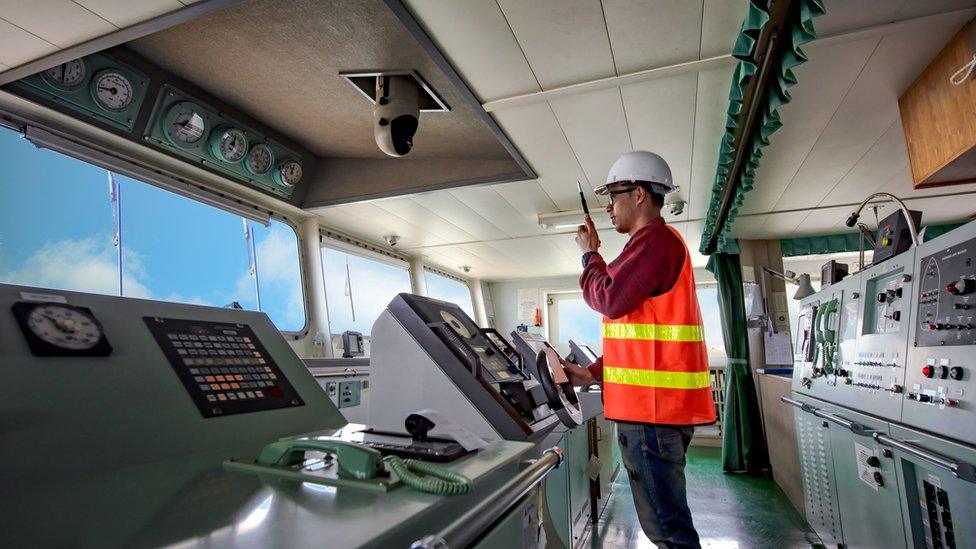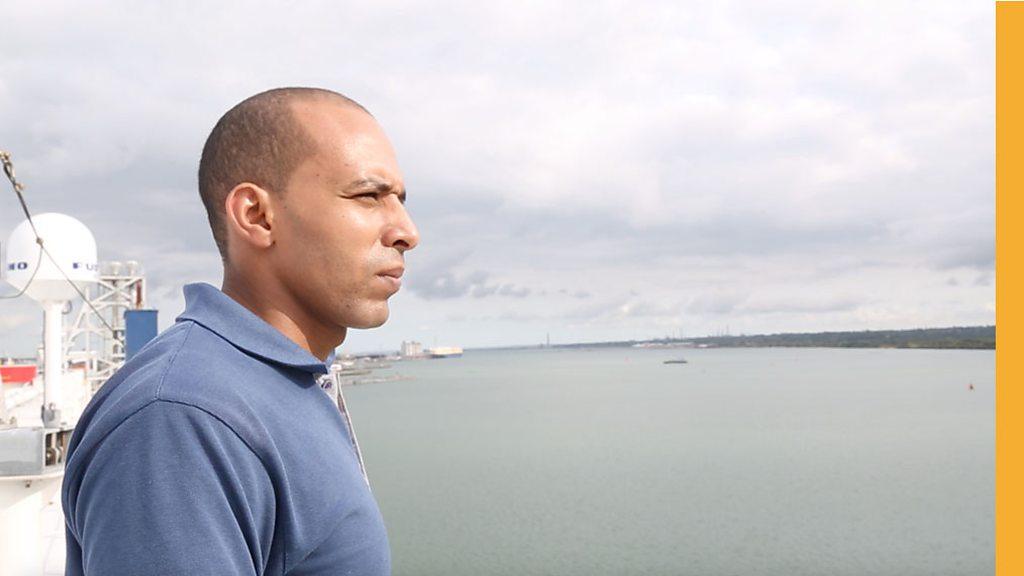Seafarers' mental health studied by Cardiff University
- Published

Seafarers "experience very little happiness on board", Helen Sampson said
Internet access should be offered to seafarers to improve their mental health, a Cardiff University study has said.
Researchers found a lack of internet access, long periods away from home, poor accommodation and food were a concern for those working at sea.
It said workers were at risk of anxiety and depression, but many employers were failing to address the issue.
More than 1,500 seafarers completed a questionnaire on their experiences.
Researchers also carried out face-to-face interviews with a small group of seafarers, employers and maritime charities.
The report, Seafarers' mental health and wellbeing, external, found internet access would make the most significant contribution to improving the mental health and wellbeing.
But it added better terms and conditions of work, relationships with colleagues on board, accommodation and recreation were also needed.
Key recommendations from the research:
At least one sport activity on-board such as basketball, squash or swimming
At least four recreational activities such as barbecues, karaoke, bingo, and card and board games
A gym with at least three pieces of equipment
At least two facilities such as a sauna, a book, DVD video or games library, satellite TV
Comfortable mattresses and furnishings within cabins
Shore leave at every opportunity for all ranks
Varied and good quality food
Introduce and enforce anti-bullying and harassment policies
Set up confidential counselling services
Helen Sampson, director of Cardiff University's Seafarers International Research Centre, led the study.
She said seafarers working on cargo ships "experience very little happiness on board".
She said there was evidence recent-onset psychological disorders were increasing among serving seafarers but 55% of employers said they had not introduced any policies or practices to address mental health for a decade.
'A gazillion miles from home'
When questioned in an interview about suffering from mental ill-health, one seafarer said: "Between pressure, workload, no days off and you are a gazillion miles away from home with limited communication, what do you think is going to happen?"
Another said: "Three months on land is nothing. You can't see your kids grow up, you can't see anything. You are just like an uncle coming and going."
Prof Sampson said: "It is all too easy for seafarers working out on the deep ocean to be invisible to those ashore.
"Their remoteness allows for abuse to go undetected. Sometimes seafarers are subjected to bullying and harassment by superiors and colleagues on board.
"However, many employers also mistreat seafarers by failing to provide decent and humane living conditions which promote good mental wellbeing... it is time such issues were properly addressed."
This research was funded by the Institution of Occupational Safety and Health.
- Published3 November 2017

- Published27 November 2018

- Published26 August 2019
